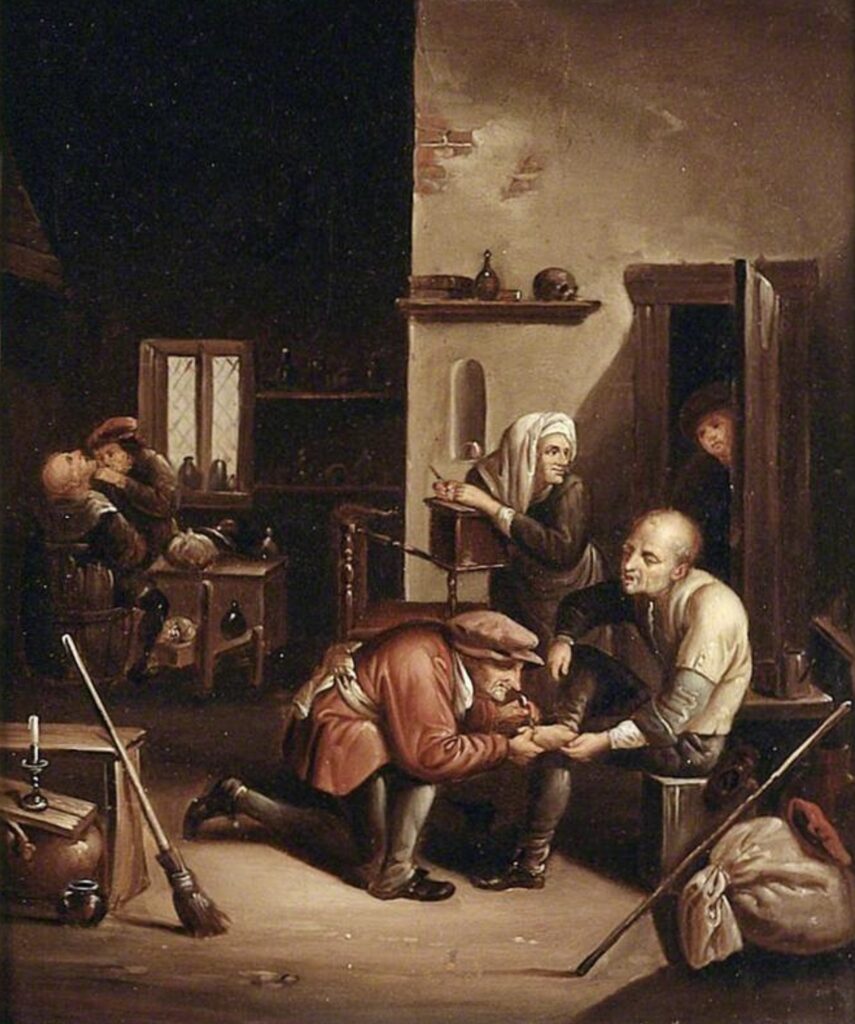THE HISTORY OF BARBER – SURGEONS AND SURGEONS IN THE UNITED KINGDOM

Barber Shaving a Man
David Teniers II (1610–1690) (follower of)
For centuries, monks were the traditional practitioners of medicine and surgery. Then about 1220, a papal decree prohibited all persons in holy orders from spilling blood. Barbers working in the monasteries were already used to working with sharp knives, and gradually began to add surgical skills to their repertoire. They performed minor surgical procedures such as the draining/lancing of boils, fistulae, and cysts with wicks; bloodletting and leeching; fire cupping; enemas; and the extraction of teeth. The first mention of the Barber’s Company is in 1308 when King Edward II granted the barbers guild status. The Barber’s Company was authorized to review, license and punish persons who would practice the noble art of surgery. They were charged with training, finding employment, and taking care of guild members and their families for life. Members of a guild could be identified by their distinctive ceremonial dress, or livery.
In due course chiurgery (surgery) was passed on to other barbers elsewhere. Most physicians lived in courts and castles and tended the royal and aristocratic families, surgeons on the other hand lived with the people and catered to the lower classes. They were generally held in less regard.
European wars and the plague diminished the number of physicians and surgeons, and left less-qualified members to carry on. When the Black Death (1347 to 1351) swept across Europe, it changed forever the face of medicine and those who practiced it. In medieval times doctors could be divided into: Physicians, Surgeons and Barbers. Physicians did not understand the root causes of many diseases, instead they relied upon unscientific “cures” that did little, if any, good. They rarely practiced surgery at this time and those who did were called barber-surgeons. The latter practiced cupping, blood letting, amputations, giving enemas, pulling teeth, and cutting hair. They also treated patients based upon examination of the urine. There was no formal training required and apprentices learned from more experienced colleagues on the job. Many barber-surgeons were illiterate or had little education. In 1375, the guild established and separated their members into those who did surgery and those who were barbers only. A proclamation was also made that required all surgeons to be licensed by the Crown in order to perform their services.
